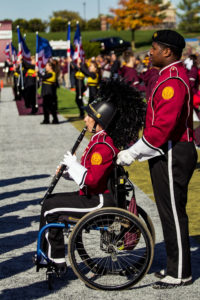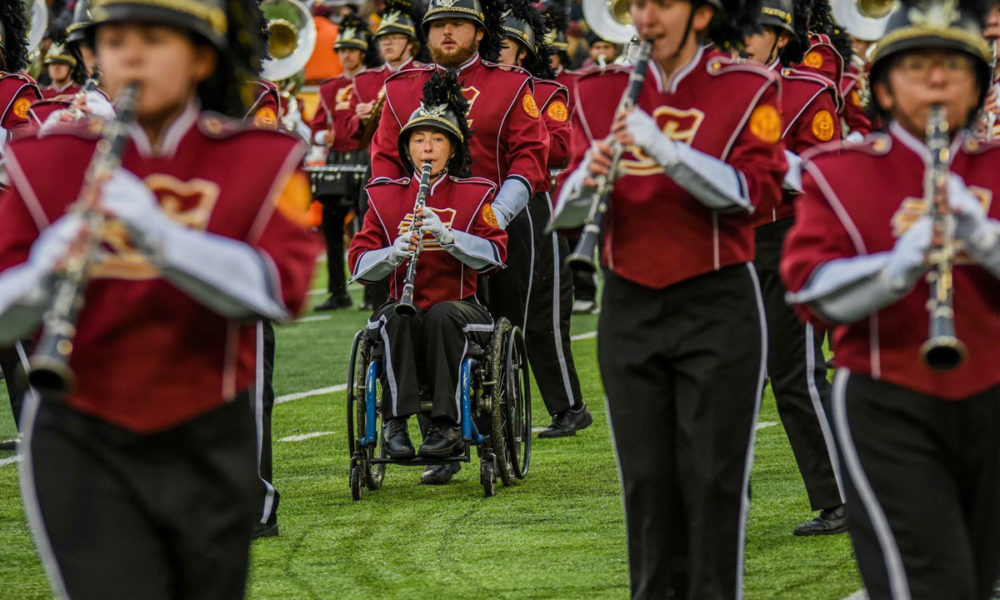Using a wheelchair did not stop Gaia Herrick from taking the field in the Central Michigan University Marching Band.
 Central Michigan University junior Gaia Herrick isn’t your typical marcher. Diagnosed with muscular dystrophy when she was 10 years old, Herrick can’t roll her toes or stand up straight while marching. Those challenges haven’t stopped her from pursuing her passion for marching band.
Central Michigan University junior Gaia Herrick isn’t your typical marcher. Diagnosed with muscular dystrophy when she was 10 years old, Herrick can’t roll her toes or stand up straight while marching. Those challenges haven’t stopped her from pursuing her passion for marching band.
Herrick transferred to CMU this year as a junior and plays the clarinet in CMU’s 250-member Chippewa Marching Band. With 11 years of performance experience, Herrick says she always had a passion for marching band. In her high school band, she sat in her chair while the band made formations around her.
“It’s the best feeling in the world,” says Herrick, who is double majoring in cellular molecular biology and music. “To me, fitting into the form was amazing.”
Chippewa Marching Band Director Dr. James Batcheller took Herrick’s participation a step further. Instead of having the band making formations around Herrick, he decided that she should move with the formations. While maintaining proper marching technique, a reserve performer pushes Herrick to her spots as she performs.
“Here’s this talented clarinetist,” Batcheller says. “If the chair isn’t a barrier to her playing, well, it doesn’t make any sense to me for it to be a barrier for her being in the band.”
Since a wheelchair can be difficult to maneuver through rain and mud and hard to turn on a dime, the band wrote specific drills to account for Herrick and the reserve.
Herrick has also learned to cope with the curious stares while she performs. “I stick out because I’m the only wheelchair on the field,” she says. “I had to get used to … having all those eyes and knowing that they’re probably going to see me and be like, ‘Huh, I wonder what’s going on.’ I guess it helps [that] I love performing and hearing the messages … supporting and encouraging me. That made it a lot better.”
Her biggest piece of advice to marchers with disabilities: “Do whatever you want. If you want something, your disability shouldn’t stop you There’s always a place that will accept you for who you are and will make you feel welcomed. You should never have to give up your dreams because of your disability.”


